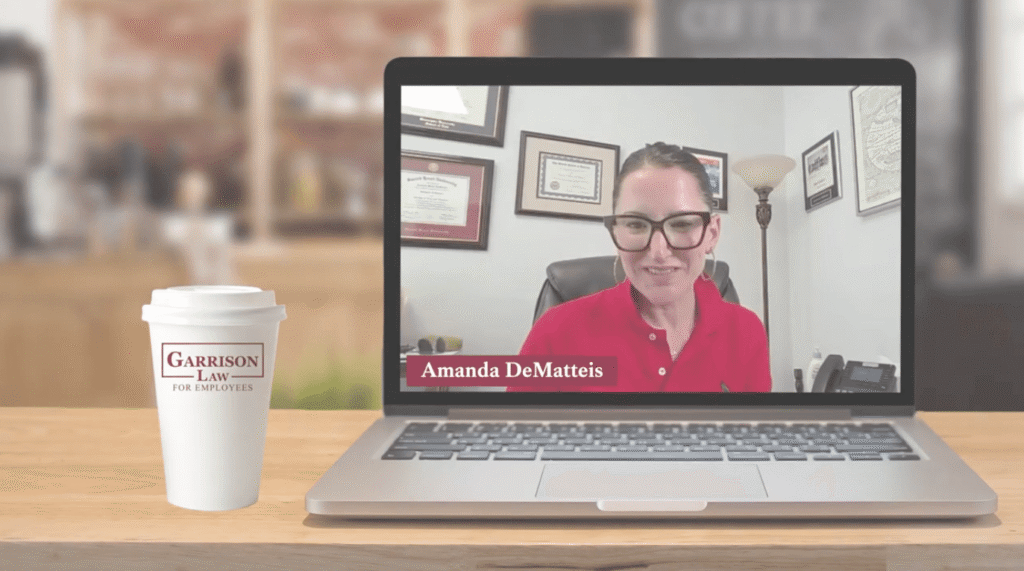Amanda DeMatteis: Hi, Josh.
Josh Goodbaum: Hi, Amanda. What are we talking about today?
DeMatteis: NPR has published a number of articles this year about a year-long investigation it has done about sexual harassment, bullying, and other forms of harassment within the federal judiciary. Some interesting stuff here for Connecticut employees. What can you tell us?
Goodbaum: Well, Amanda, this is pretty shocking and troubling information. The federal courts, obviously, are a hugely powerful institution and in the news a lot these days, because of the Trump administration coming up against some federal court orders. But we don’t often think about the federal courts as a workplace – at least if we don’t work there.
But what this NPR story showed is that there’s a serious problem of accountability in the workplace for federal judges who are not just judges; they’re also bosses. And what’s amazing is that there’s almost no legal accountability for federal judges as employers. Almost every employer in this country is covered either by a federal law prohibiting discrimination, including sexual harassment, and/or by a state law, or even a municipal law, that prohibits discrimination, including sexual harassment.
But the federal judiciary is carved out of the federal law that prohibits sexual harassment, so there is no law that applies to the federal judiciary, arguably, that prohibits sexual harassment, and that means that employees who are subjected to sexual harassment in the federal courts where they work may have very little recourse. And that’s, of course, deeply troubling to us as employment lawyers who represent employees.
But there were also some dynamics within this NPR reporting about stories that law clerks and other employees told that really resonate with our own experience representing people who have experienced sexual harassment, Amanda, right?
DeMatteis: Absolutely, Josh. There was a law clerk in Alaska who was quoted by NPR as saying, “The judge was the HR department. The judge was my boss. The judge was a colleague. The judge was everything. He had all the power.” And that set of quotes really stuck out to me, Josh, because we have a lot of employee clients in sexual harassment cases that deal with this very same power dynamic. And it doesn’t matter what industry it’s in: It could be a bartender dealing with the owner of a restaurant. It could be a medical assistant dealing with the owner of a med spa or the physician in a particular medical facility. This power dynamic that this law clerk was explaining, while it is very troubling in the federal judiciary, exists in almost every employment or place of employment within Connecticut and across the country.
So, the real key takeaway here is it doesn’t matter where you work. It doesn’t matter who your boss is, who the owner of the company is, how much power you think your manager has, or how much money you think someone has; sexual harassment is illegal. Luckily, if you’re not an employee within the federal judiciary, you have a lot of recourse both under Connecticut state law and federal law.
So, if you are being sexually harassed at work, if you are being inappropriately spoken to by a member of management or ownership at work, if you are being sexually touched without consent, you have options, and you should not feel as though this power dynamic is something that prevents you from getting the recourse and, ultimately, the justice that you need and deserve.
Goodbaum: Absolutely, Amanda, and it’s so important to remember as well that sexual harassment does not discriminate within the workplace, that sexual harassment is something that happens to blue collar folks and white collar folks, to young folks and old folks, to men and women, to straight people and queer people, to people with disabilities and without disabilities, to people of every religion. We see this all across the board among judicial law clerks and lawyers and physicians, as well as folks who work as servers in restaurants or folks who are administrative assistants or all kinds of folks in between.
So, as Amanda said, if you are facing sexual harassment, you are not alone. For the most part, you do have legal recourse, you do have protection, and you should not hesitate to reach out to an employment lawyer for assistance.
Thank you all so much for watching. We really appreciate it. We’ll see you next time. Take care.

